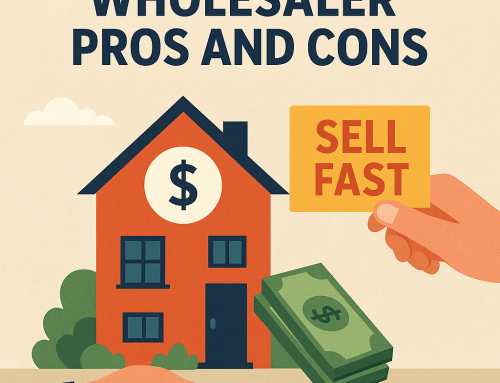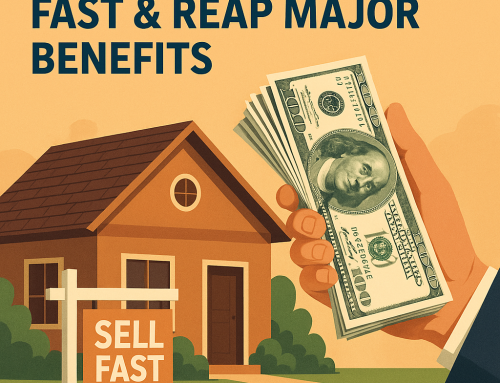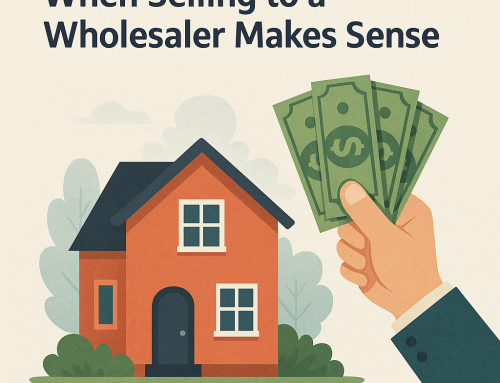- The Wholesaler Approach
- Advantages of Selling to a Wholesaler
- Disadvantages of Selling to a Wholesaler
- The Real Estate Agent Option
- Advantages of Selling with a Real Estate Agent
- Disadvantages of Selling with a Real Estate Agent
- When to Choose Each Option
- Conclusion
When homeowners decide to sell, the urgency to get cash for their home can significantly affect their choice of selling method. Two common paths are working with wholesalers or traditional real estate agents. Each option carries its own set of advantages and disadvantages, making it essential for sellers to understand their choices before making a decision.
The Wholesaler Approach
Wholesalers operate by finding properties at a discounted price, putting them under contract, and then selling that contract to an end buyer—often an investor—quickly. Here are some pros and cons to consider when evaluating this option.
Advantages of Selling to a Wholesaler
1. Speed of Transaction: Wholesalers can often close deals in a matter of days, helping homeowners sell home fast without the prolonged timeline typical in traditional sales.
2. As-Is Sales: Sellers do not usually have to make repairs or renovations. Wholesalers buy homes in their current condition, freeing homeowners from the hassle and expense of fixing up their property.
3. Less Market Exposure: There’s no need to list the home publicly, and negotiations tend to be simpler, which can be appealing for those looking to bypass the traditional market.
Disadvantages of Selling to a Wholesaler
1. Lower Selling Price: The speed of the sale often comes at a cost. Wholesalers need to make a profit, meaning they typically offer less than what a home might fetch on the open market.
2. Risk of Non-closure: Transactions can fall through if the wholesaler fails to find an end buyer, leaving the homeowner in a tough spot.
3. Lack of Regulation: The wholesaling industry is less regulated than traditional real estate, which can lead to questionable practices and less protection for the seller.
The Real Estate Agent Option
Real estate agents represent homeowners in the market, providing expertise and services to facilitate a traditional sale. This route carries its own set of benefits and drawbacks.
Advantages of Selling with a Real Estate Agent
1. Higher Selling Price: Agents typically have the market knowledge to price homes correctly and negotiate on behalf of the seller, often resulting in a better final price.
2. Professional Marketing: Real estate agents have access to multiple listing services (MLS) and are skilled in promoting properties, which can help attract more potential buyers.
3. Expert Guidance: Agents can provide valuable insights about market trends, staging tips, and navigating the complex paperwork involved in a sale.
Disadvantages of Selling with a Real Estate Agent
1. Time Consumption: Selling through an agent can take weeks or even months, which can be problematic for those requiring immediate cash for their home.
2. Commission Fees: Sellers typically pay a percentage of the sale price as a commission, reducing overall profit from the sale.
3. Repair and Staging Costs: To attract buyers, homeowners may need to invest time and money into repairs and staging, which can be a burden.
When to Choose Each Option
The decision between wholesaling and working with a real estate agent largely depends on individual circumstances. If speed is of the essence and the homeowner is willing to accept a lower price for a quick sale, a wholesaler could be the right choice. Conversely, if maximizing profit is the priority and there’s time to spare, working with a knowledgeable real estate agent may yield better financial results.
Conclusion
Selling a home is a significant financial decision that can greatly impact a homeowner’s future. By weighing the pros and cons of using a wholesaler versus a realtor, sellers can make informed decisions that align with their needs. Whether the goal is to sell home fast or to obtain the highest possible sale price, understanding these options will empower homeowners to achieve their objectives effectively.




